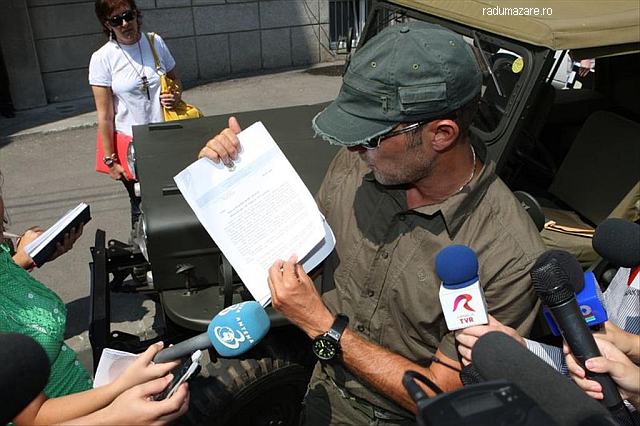Investigations and famous politicians
Once vulnerable to external pressure, the Romanian judiciary has more recently appeared determined to make up for all the time it lost in the almost 25 years of post-communist history. For years, influential politicians and businessmen seemed to be above the law in Romania. After the country’s entry into the European Union in 2007, few such people actually served time in prison, despite the start of a large number of criminal investigations. It wasn’t until 2012 that the fight against corruption scored its first big success with the conviction of the former Social Democrat prime minister Adrian Nastase to time in prison. Two years later, scores of public figures, mainly politicians, are being summoned at the National Anticorruption Directorate every week.
The biggest story this week is the investigation of the Social Democrat mayor of Constanta, Radu Mazare, for bribe taking. According to prosecutors, he received 175,000 euros in 2011 from the representatives of a company building social housing. In exchange for the money, Mazare is believed to have helped the company win the bid and later increase the value of the 10 million euro contract by another 1 million. Radu Mazare unsurprisingly rejects all accusations and says he is yet another victim of political persecution.
However, Radu Mazare is no ordinary mayor. Currently serving his fourth term in one of the country’s biggest cities and its main maritime port, he is one of the best examples of what is commonly known in Romania as a “local baron”, a figure with immense power and influence at local level. Despite his clownish, even shocking public appearances and his colourful and sometimes indecent language, Mazare is an important man within the Social Democratic Party, the main political force in Romania. Political commentators say the investigations against Mazare are thus a powerful signal for all so-called “local barons”, irrespective of their political orientation, that everyone is accountable before the law.

Florentin Căpitănescu, 09.04.2014, 14:31
Once vulnerable to external pressure, the Romanian judiciary has more recently appeared determined to make up for all the time it lost in the almost 25 years of post-communist history. For years, influential politicians and businessmen seemed to be above the law in Romania. After the country’s entry into the European Union in 2007, few such people actually served time in prison, despite the start of a large number of criminal investigations. It wasn’t until 2012 that the fight against corruption scored its first big success with the conviction of the former Social Democrat prime minister Adrian Nastase to time in prison. Two years later, scores of public figures, mainly politicians, are being summoned at the National Anticorruption Directorate every week.
The biggest story this week is the investigation of the Social Democrat mayor of Constanta, Radu Mazare, for bribe taking. According to prosecutors, he received 175,000 euros in 2011 from the representatives of a company building social housing. In exchange for the money, Mazare is believed to have helped the company win the bid and later increase the value of the 10 million euro contract by another 1 million. Radu Mazare unsurprisingly rejects all accusations and says he is yet another victim of political persecution.
However, Radu Mazare is no ordinary mayor. Currently serving his fourth term in one of the country’s biggest cities and its main maritime port, he is one of the best examples of what is commonly known in Romania as a “local baron”, a figure with immense power and influence at local level. Despite his clownish, even shocking public appearances and his colourful and sometimes indecent language, Mazare is an important man within the Social Democratic Party, the main political force in Romania. Political commentators say the investigations against Mazare are thus a powerful signal for all so-called “local barons”, irrespective of their political orientation, that everyone is accountable before the law.






























